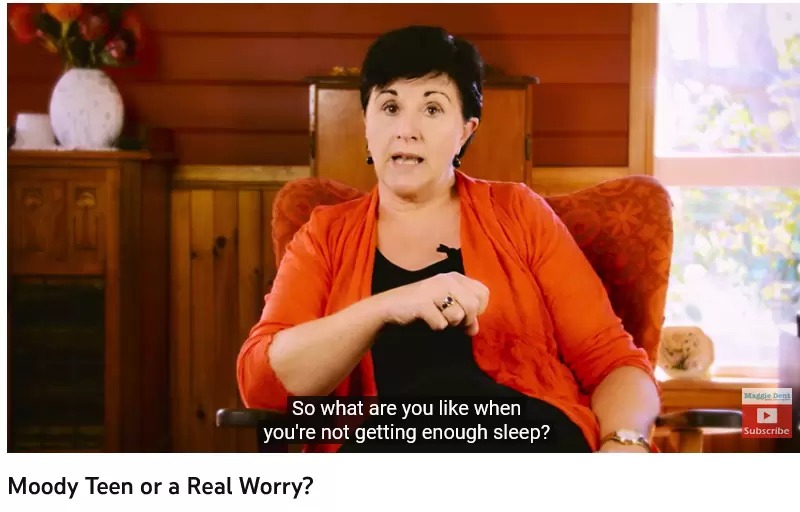Mood swings characterise the teen years. They desire freedom, yet they are still dependent. They feel confusion and instability and so their ability to manage their moods breaks down..
For teens surroundings mean everything. They live and breathe by what happens with their friends, in their home, and at school, Good events bring a euphoric mood, and bad events can bring a despairing mood.

REALISE YOUR TEEN TENDS TO BE MORE DOWN AND NEGATIVE AT HOME BECAUSE SHE FEELS SAFE WITH YOU
You need to treat them like you did when they were little
Contain and empathise – You contain your teen’s feelings rather than react to, invalidate, or try to change those feelings. You avoid saying things like “Aren’t you being dramatic here?”. “It’s really not that bad”, “Cheer up, it will get better” When you listen and put those intense feelings into perspective, you help your teen bear them. E.g.
“Brooke, I know you’re hurt by how Kelly treated you at the party. She got between you and your other friends, and it really embarrassed you. I can see why you’d feel sad and alone”
Clarify – When you clarify, you give reality and perspective to your teen and her situation. You can counter her catastrophic thinking by giving your take on what happened, This can be very stabilising for her. While you want to usher her into reality, your teen needs for you to respect what she is feeling. Let’s suppose brooke is still upset you can clarify the situation for her by saying “Brooke, you should be upset by what Kelly did. It was hurtful. At the same time, I want you to remember that the girls who are really on your side won’t leave you, because you have some really solid and good friends.”
Provide structure – teens who are moody need an ordered, structured environment. Their internal world is unstructured, a little chaotic, and still forming. So they need their external world (which is you and their home) to be safe and stable. The more internally unstable your teen, the more external stability you need to provide. Make sure you keep your promises and that you are consistent and dependable in time, scheduled activities and meals. This, along with your warmth and support, can go a long way toward helping your adolescent begin to regulate his moods. Keep the limits and consequences you would normally keep for your teen. Don’t allow disrespect, aggression, or acting out. Moody teens need a lot of love and comfort, but they don’t have license to disrupt other people’s lives.
Mention the mood only after containing, clarifying and providing structure – You need to have done those three before you say “I’ve noticed that your feelings are extreme, and I want to help you with them”. This way you don’t run the risk of causing your teen to feel invalidated and dismissed, so that she may not improve simply because she feels she has to prove you wrong. If your teen’s moods don’t improve over tiem, it might help to mention it so she can become more aware of what is going on.
Distinguish moodiness from bipolar disorder. Don’t be afraid of your teen’s moods. Expect them, and deal with them. He needs a parent who will engage with him about them, talk to him, and help him. He needs a parent who knows what to do or else knows how to find someone who can help.

